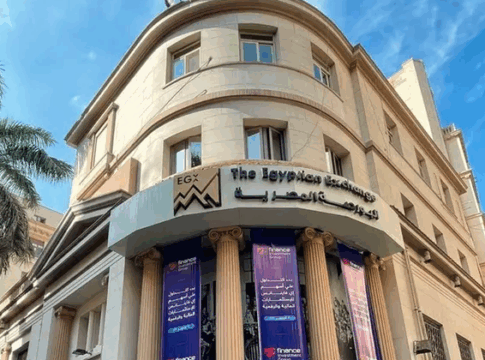Egypt’s stock market closed Thursday, 8th of May session on a mixed note, reflecting an increasingly fragmented investor sentiment amid global uncertainties and regional economic recalibrations. While major indices slipped modestly, mid-cap stocks showed surprising resilience, buoyed in part by selective institutional buying and speculation in high-yielding sectors.
The EGX30 benchmark index, a key barometer of blue-chip performance, edged down 0.21% to close at 31,772.04 points, marking its third decline this week. The EGX33 Shariah-compliant index also retreated, falling 0.16% to settle at 3,295.73 points.
In contrast, the EGX70 EWI, which tracks small and mid-cap firms, gained 0.17%, closing at 9,498.35 points, while the broader EGX100 index ended marginally higher at 12,853.27 points, a modest 0.02% rise.
The total market capitalization stood at 2.26 trillion Egyptian pounds, signaling relative stability despite the varied performance across sectors.
One of the most notable trends was the significant divergence in trading patterns between domestic and foreign investors.
According to EGX trading data reviewed by Middle East Observer, Egyptian investors were net sellers, offloading approximately 1.83 billion EGP in shares. Arab investors followed suit, shedding 2.5 billion EGP in equities.
However, non-Arab foreign investors stepped in aggressively, acting as net buyers with a combined intake of 4.33 billion EGP.
“We’re seeing a strategic entry of foreign funds, possibly anticipating undervaluation plays ahead of Egypt’s upcoming monetary and structural reforms,” said Rami El-Dokany, Chairman of the Egyptian Exchange, in an exclusive comment to MEO.
The foreign inflow underscores a growing confidence in Egypt’s macroeconomic outlook, even as domestic investors adopt a more cautious stance
The session’s biggest gainer was Saudi Egyptian Investment and Finance, which surged 20.00%, closing at 87.840 EGP per share. Market analysts point to renewed speculation over regional mergers and increased Gulf interest in Egypt’s private equity space as potential drivers.
Universal for Paper and Packaging Materials (Unipack) jumped 11.01% to 1.079 EGP, driven by growing investor appetite in defensive manufacturing sectors.
Also seeing solid gains was Prime Holding, which climbed 8.70%, closing at 1.250 EGP. Brokerage insiders say the uptick follows speculation about a potential restructuring of its investment portfolio.
On the downside, Rakta Paper Manufacturing fell 4.37% to 23.860 EGP, continuing a volatile streak amid weak earnings signals and commodity price concerns.
El Kahera Housing lost 3.96%, closing at 2.670 EGP, weighed down by broader real estate sector pressures linked to rising construction input costs.
Gulf Canadian Real Estate Investment Co. declined 3.76% to 4.100 EGP, amid muted outlooks for speculative real estate plays.
“The divergence between EGX30 and EGX70 reflects investor repositioning from established conglomerates to agile, niche players,” said Mona El-Nahhas, senior analyst at HC Securities. “Foreign inflows are now being used more strategically, not just as a confidence signal but to identify medium-term alpha opportunities.”
Despite the mixed performance, the EGX’s relative resilience this week contrasts with more volatile movements in regional bourses, especially in markets exposed to oil price fluctuations or currency pressures.
The Central Bank of Egypt’s recent interest rate hold and ongoing IMF-backed fiscal reforms continue to anchor medium-term confidence, particularly for foreign institutional investors.
“What’s happening is not a retreat—it’s a recalibration,” El-Dokany added. “Markets are adjusting to new risk dynamics, including inflation, interest rates, and geopolitics. We see more room for sophisticated capital to find value in Egypt.”


